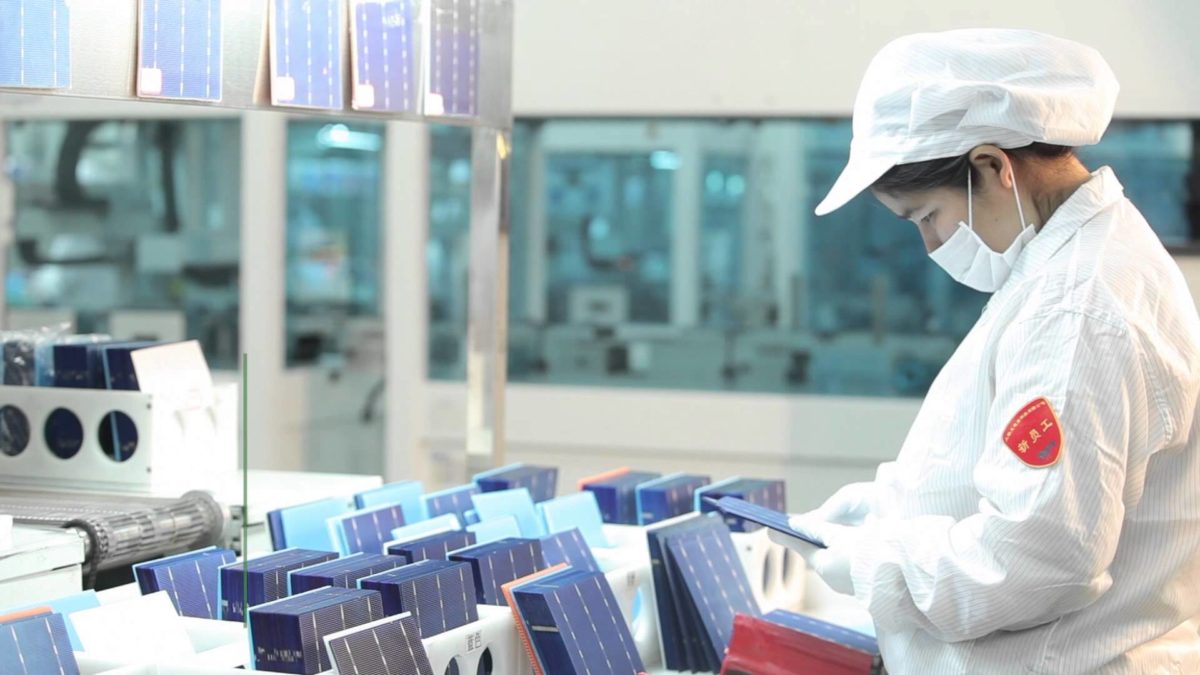https://www.pv-magazine-australia.com/2022/10/28/globalised-supply-chains-saved-103-billion-in-solar-panel-production-costs/
Globalised supply chains saved $103 billion in solar panel production costs

JinkoSolar manufacturing plant in Jacksonville, Florida.
Image: JinkoSolar
From pv magazine Global.
With multiple regions looking to accelerate domestic manufacturing amid the geopolitical tensions and supply chain vulnerabilities that have plagued the solar manufacturing sector as of late, a new study finds that a globalised solar PV supply chain has been instrumental in lowering module prices in the 2006-2020 period.
Researchers in the US have calculated that the globalised supply chain saved $103 billion (USD 67 billion) in solar panel production costs compared with a counterfactual scenario in which domestic manufacturers supplied an increasing proportion of installed capacities over the given period.
Specifically, their study looked at historically installed capacities as well as input material and sales price data for deploying solar panel modules in the US, Germany and China — the three largest solar-deploying countries. It found that the globalised solar supply chain has delivered savings of $37 billion for the U.S., $10.7 billion for Germany and $55.4 billion for China.
Had each of the three countries adopted strong nationalistic trade policies that limited cross-border learning over the same time period, solar panel prices in 2020 would have been significantly more expensive — 107% higher in the US, 83% higher in Germany, and 54% higher in China — according to the study “Quantifying the cost savings of global solar photovoltaic supply chains,” published in Nature.
The research team also looked at the cost implications of more protectionist trade policies going forward. They estimate that if strong nationalistic policies are implemented, solar panel prices will be approximately 20-25% higher in each country by 2030 compared to a future with globalised supply chains. Policies such as imposing import tariffs could complicate efforts to accelerate deployment of renewables like solar by raising the cost of production, the researchers said.
“Policies that cut off global value chains and restrict flows of people and capital will disrupt the global learning processes that have contributed precisely to solar’s success story,” said Michael Davidson, assistant professor at University of California San Diego and coauthor on the study. “Models demonstrating the feasibility of meeting ambitious clean energy targets rely upon continued cost declines which may not materialise if countries choose to go it alone.”
In light of the recently adopted Inflation Reduction Act in the US, the largest climate energy package in the country’s history, John Helveston, lead author of the study and assistant professor of engineering management and systems engineering at the George Washington University, said, “What our study contributes to this conversation is a reminder not to implement these policies in a protectionist manner. Supporting the US manufacturing base can and should be done in a way that encourages firms to trade with foreign partners to continue to accelerate cost reductions.”
This content is protected by copyright and may not be reused. If you want to cooperate with us and would like to reuse some of our content, please contact: editors@pv-magazine.com.
<




